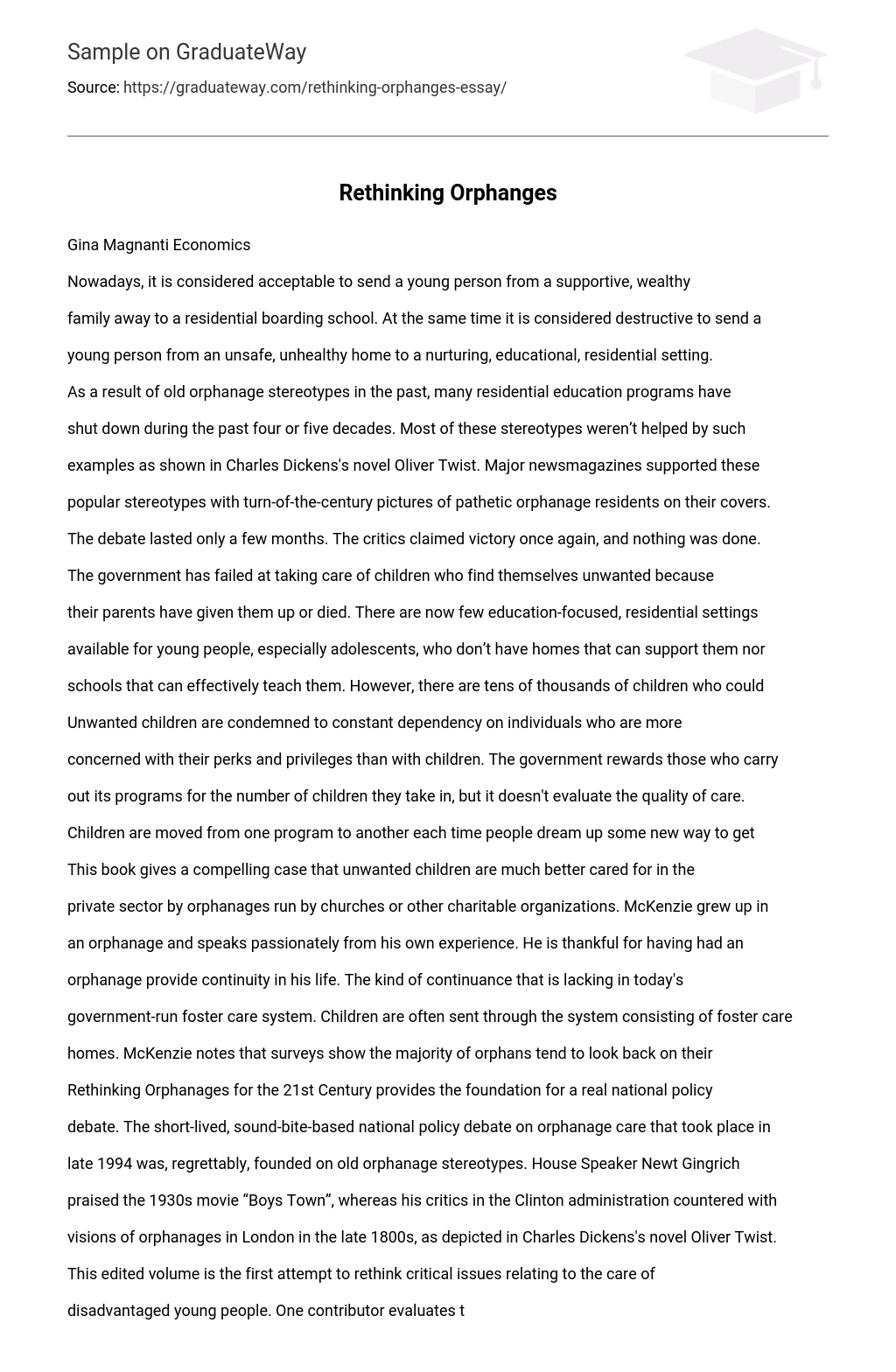Gina Magnanti Economics
Nowadays, it is considered acceptable to send a young person from a supportive, wealthy
family away to a residential boarding school. At the same time it is considered destructive to send a
young person from an unsafe, unhealthy home to a nurturing, educational, residential setting.
As a result of old orphanage stereotypes in the past, many residential education programs have
shut down during the past four or five decades. Most of these stereotypes weren’t helped by such
examples as shown in Charles Dickens’s novel Oliver Twist. Major newsmagazines supported these
popular stereotypes with turn-of-the-century pictures of pathetic orphanage residents on their covers.
The debate lasted only a few months. The critics claimed victory once again, and nothing was done.
The government has failed at taking care of children who find themselves unwanted because
their parents have given them up or died. There are now few education-focused, residential settings
available for young people, especially adolescents, who don’t have homes that can support them nor
schools that can effectively teach them. However, there are tens of thousands of children who could
Unwanted children are condemned to constant dependency on individuals who are more
concerned with their perks and privileges than with children. The government rewards those who carry
out its programs for the number of children they take in, but it doesn’t evaluate the quality of care.
Children are moved from one program to another each time people dream up some new way to get
This book gives a compelling case that unwanted children are much better cared for in the
private sector by orphanages run by churches or other charitable organizations. McKenzie grew up in
an orphanage and speaks passionately from his own experience. He is thankful for having had an
orphanage provide continuity in his life. The kind of continuance that is lacking in today’s
government-run foster care system. Children are often sent through the system consisting of foster care
homes. McKenzie notes that surveys show the majority of orphans tend to look back on their
Rethinking Orphanages for the 21st Century provides the foundation for a real national policy
debate. The short-lived, sound-bite-based national policy debate on orphanage care that took place in
late 1994 was, regrettably, founded on old orphanage stereotypes. House Speaker Newt Gingrich
praised the 1930s movie “Boys Town”, whereas his critics in the Clinton administration countered with
visions of orphanages in London in the late 1800s, as depicted in Charles Dickens’s novel Oliver Twist.
This edited volume is the first attempt to rethink critical issues relating to the care of
disadvantaged young people. One contributor evaluates the current dreadful state of care for many
American children. Another contributor evaluates the literature relating to orphanage care and finds
much of it to be lacking. Yet another contributor does what the critics have not done- and surveys
orphans about how they have done in life and how they look back on their experiences. Unfortunately,
the reality of orphanages and the Hollywood portrayals of them was never compared until this.





